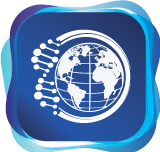 |
CCST9064 Science, Technology and Big Data
|
Course Description
Imagine that we turned all the information in our DNA into ‘1’s and ‘0’s. That would be 1.5 gigabytes (GB) of data! To think that this information can determine everything about ‘who we are’ is a frightening thought, but we can now easily obtain this code for each individual in just a matter of days. Ten years ago, the letters A, T, C and G may only have been relevant in a biology exam, but nowadays it means so much more! When your gym reports that you possess the ‘warrior gene’, does it mean you will do particularly well in your workups? Why do twins turn out to be completely different when they grow up in different countries? Are all our problems our parent’s fault? Or is ‘someone’ or ‘something else’ responsible too?
This course aims to explore the ways that the DNA code can influence our lives and well-being. The content will be applicable to students from any background and participants will also get to meet representatives from non-governmental organizations and learn from their perspectives. The teaching will be primarily lecture-based and the assessment will be 100% coursework.

Course Learning Outcomes
On completing the course, students will be able to:
- Build awareness of the issues faced by individuals with genetic diseases in their daily lives, through interaction with experts and representatives from patient representation groups.
- Demonstrate an understanding of how the DNA code affects us from individual to global perspectives.
- Reflect on the meaning of inheritance in our lives.
- Be able to distinguish what IS and what IS NOT determined by our genes, and break common myths and misconceptions.
Offer Semester and Day of Teaching
First semester (Wed)
Study Load
| Activities | Number of hours |
| Lectures | 22 |
| Tutorials | 8 |
| Film viewing | 2 |
| Reading / Self-study | 30 |
| Assessment: Essay / Report writing | 25 |
| Assessment: Presentation (incl preparation) | 30 |
| Assessment: In-class quizzes (incl preparation) | 10 |
| Total: | 127 |
Assessment: 100% coursework
| Assessment Tasks | Weighting |
| Essay | 35 |
| Presentation | 30 |
| In-class quizzes | 20 |
| Tutorial participation | 15 |
Required Reading
Articles:
- Evans, J. P., Skrzynia, C., Burke, W. (2001, April). The complexities of predictive genetic testing. British Medical Journal, 322(7293), 1052.
- Nicholls, S. G., Wilson, B. J., Etchegary, H., Brehaut, J.C., Potter, B.K., Hayeems, R., Chakraborty, P., Milburn, J., Pullman, D., Turner, L., & Carroll, J. C. (2014, August). Benefits and burdens of newborn screening: Public understanding and decision-making. Personalized Medicine, 11(6), 593-607.
Course Co-ordinator and Teacher(s)
| Course Co-ordinator | Contact |
| Professor B.H.Y. Chung Department of Paediatrics and Adolescent Medicine, LKS Faculty of Medicine |
Tel: 2255 4482 Email: bhychung@hku.hk |
| Teacher(s) | Contact |
| Professor B.H.Y. Chung Department of Paediatrics and Adolescent Medicine, LKS Faculty of Medicine |
Tel: 2255 4482 Email: bhychung@hku.hk |
| Professor W.L. Yang Department of Paediatrics and Adolescent Medicine, LKS Faculty of Medicine |
Tel: 3917 9073 Email: yangwl@hku.hk |

